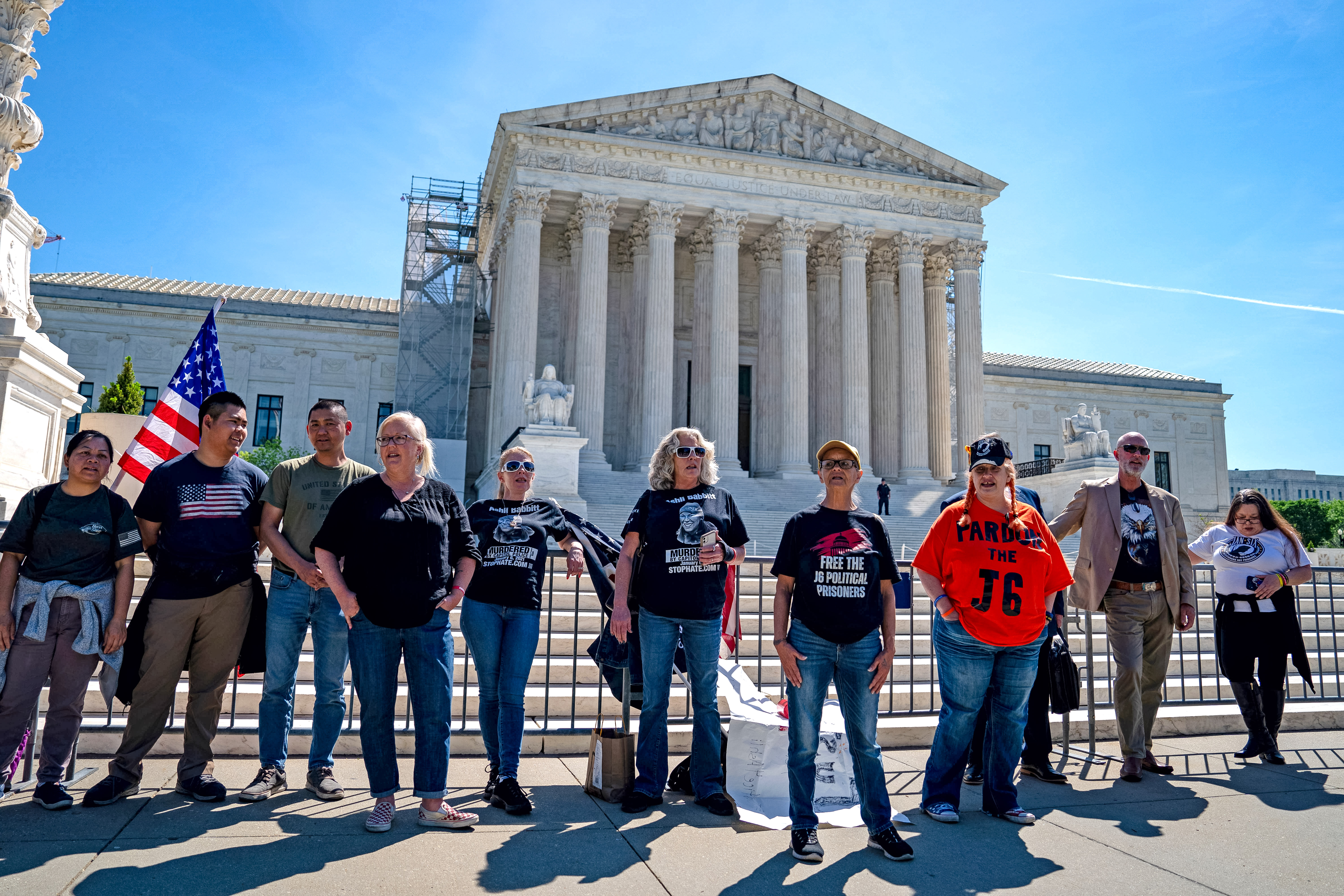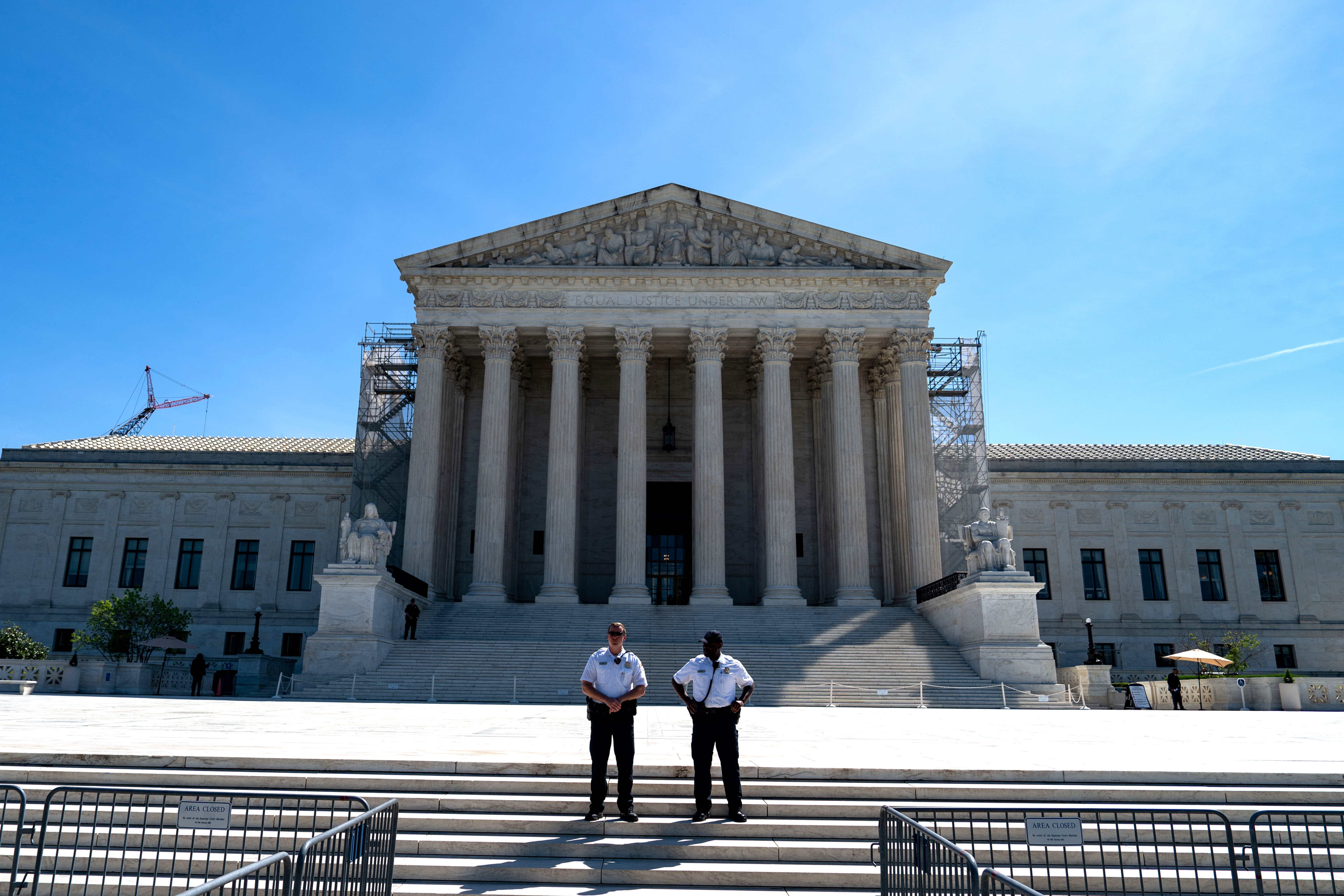

Supporters of Jan. 6 defendants including Micki Witthoeft, the mother of Ashli Babbitt, stand outside of the Supreme Court in Washington on April 16, 2024. Kent Nishimura/Getty Images
Conservative Supreme Court justices seemed generally sympathetic on April 16 to a former police officer charged under an accounting reform law after he entered the U.S. Capitol for four minutes on Jan. 6, 2021.
The case is being closely watched because once the Supreme Court rules, its decision could affect hundreds of Jan. 6 prosecutions, including the Jan. 6-related case against former President Donald Trump.
Joseph Fischer, from Jonestown, Pennsylvania, was indicted on several counts following the Capitol breach on Jan. 6, 2021, including obstructing an official proceeding under Enron-era obstruction law 18 U.S. Code Section 1512(c). Convictions under the section can lead to 20 years in prison.

